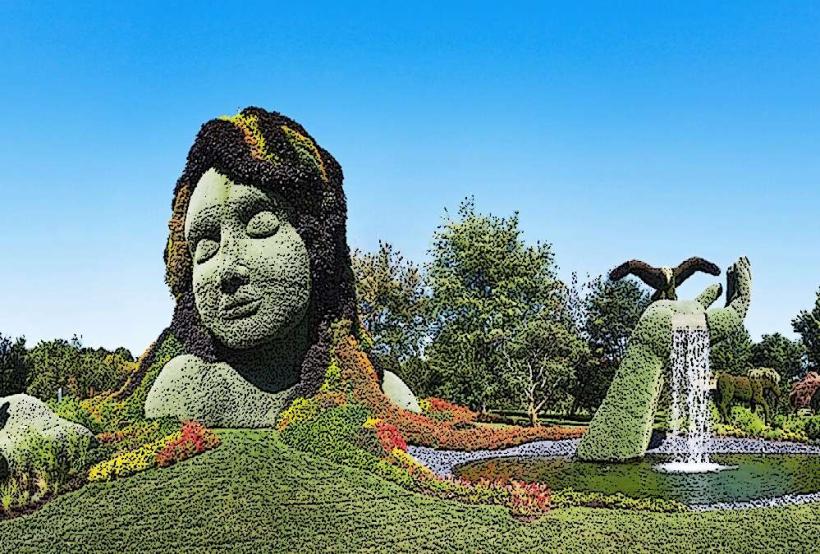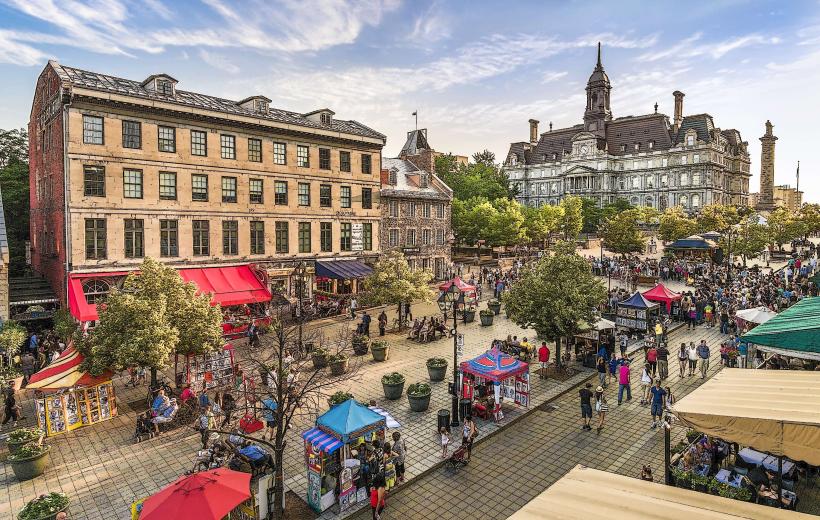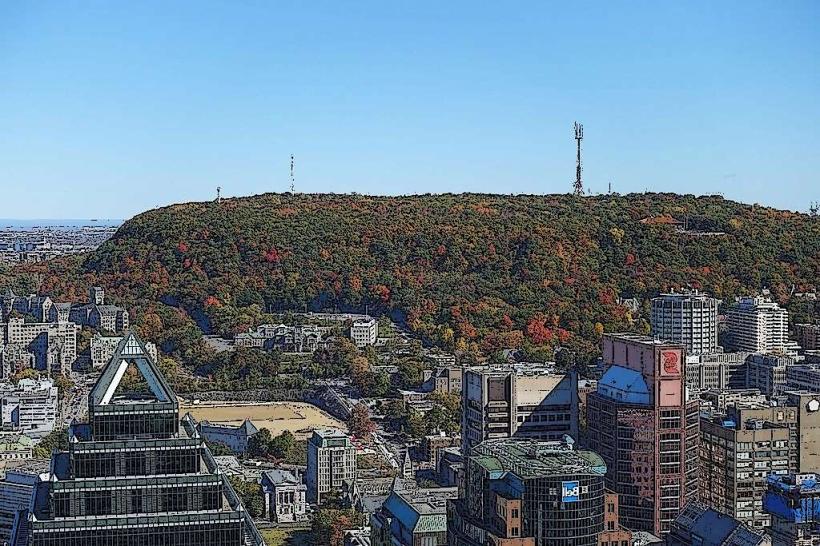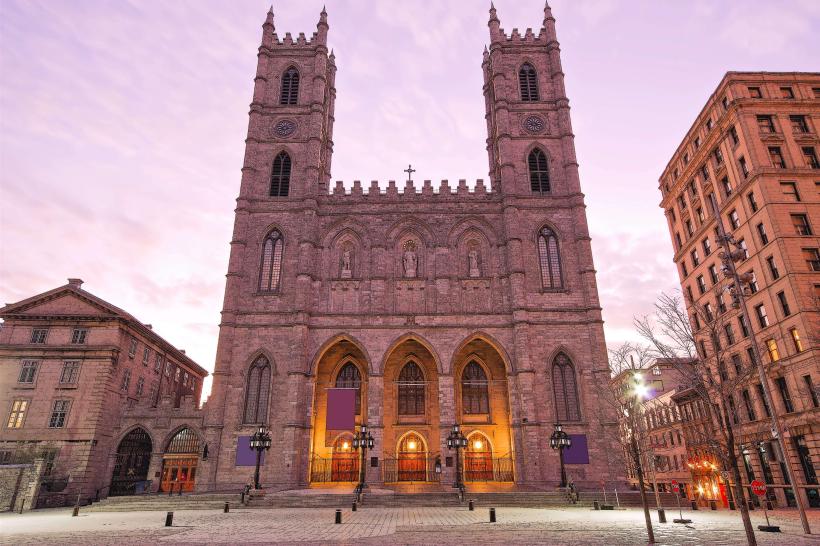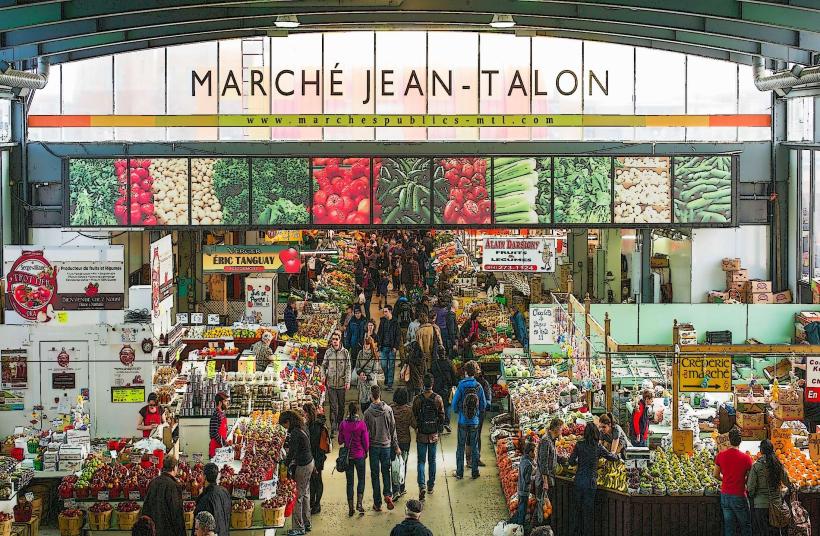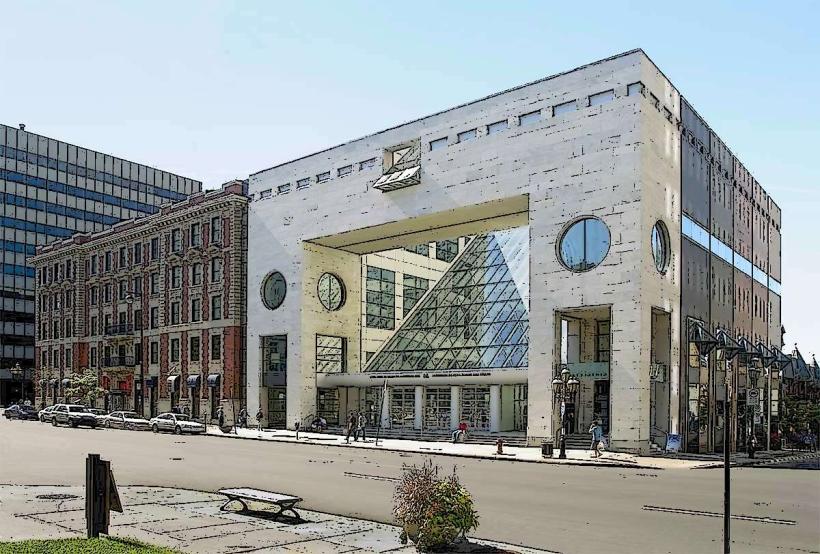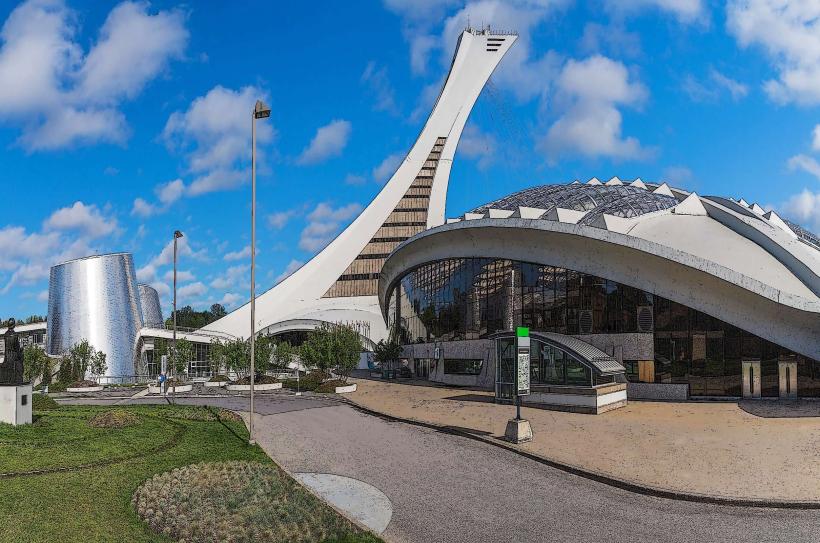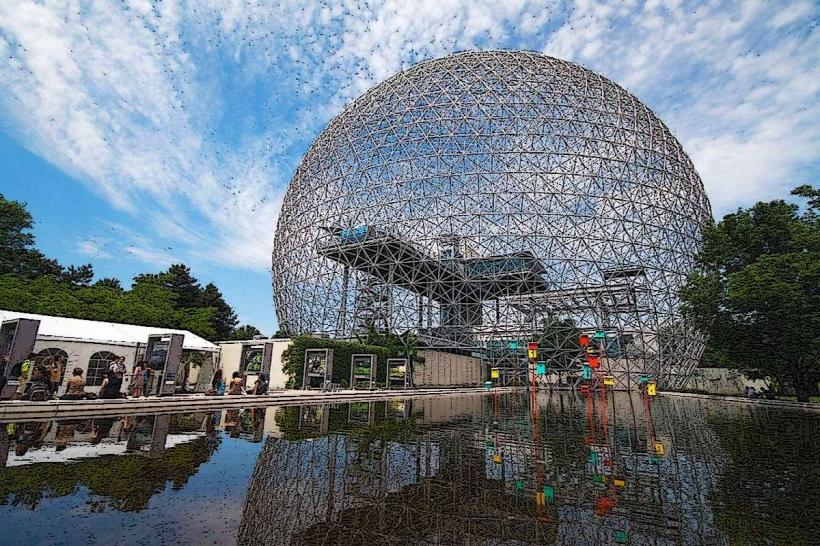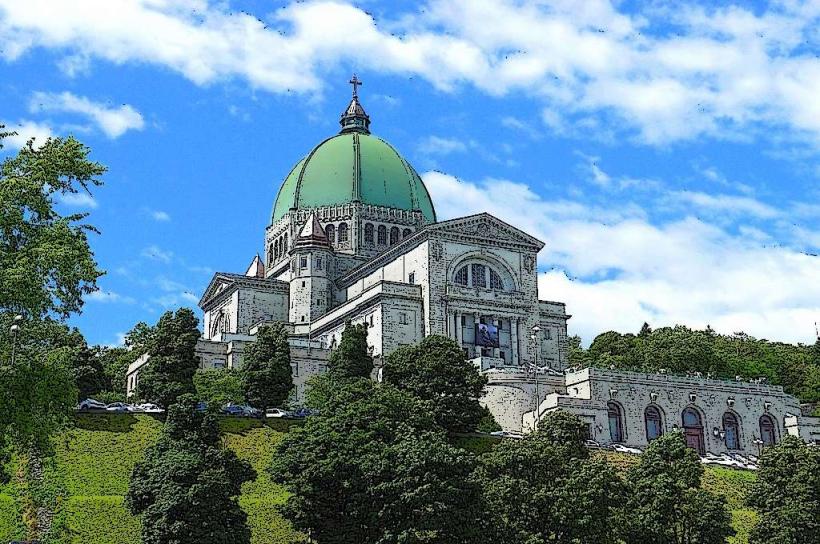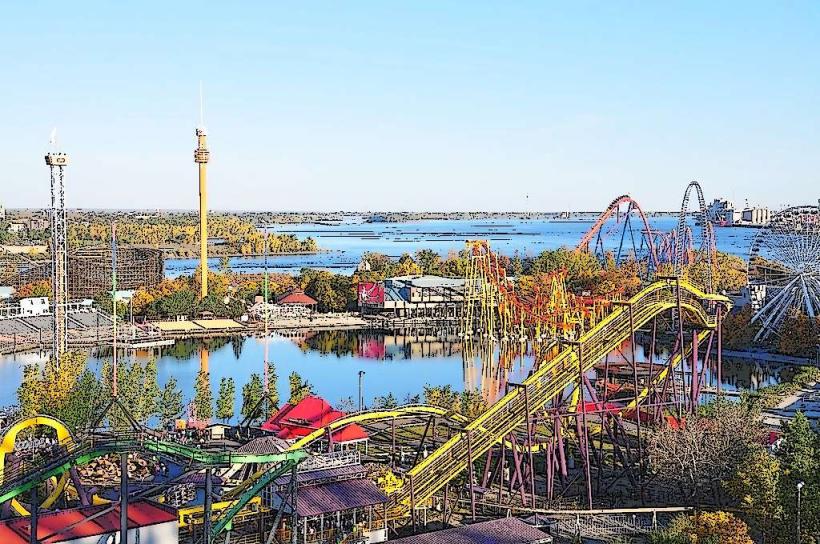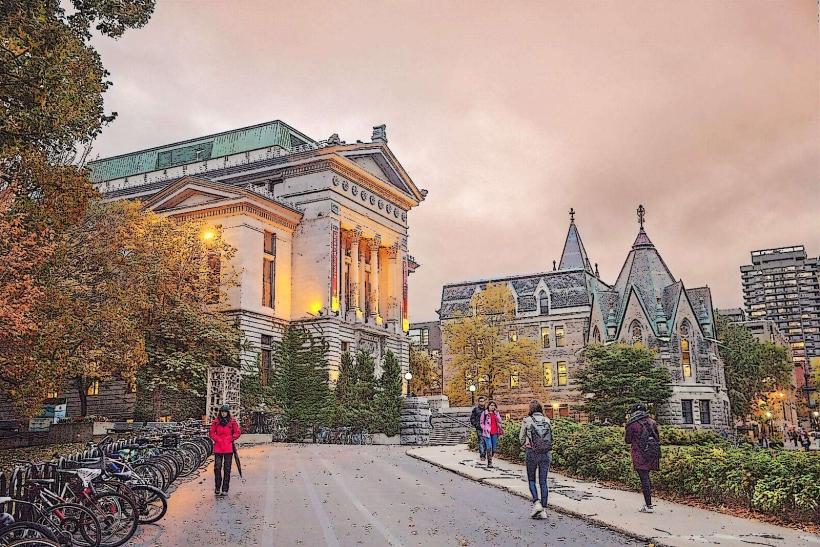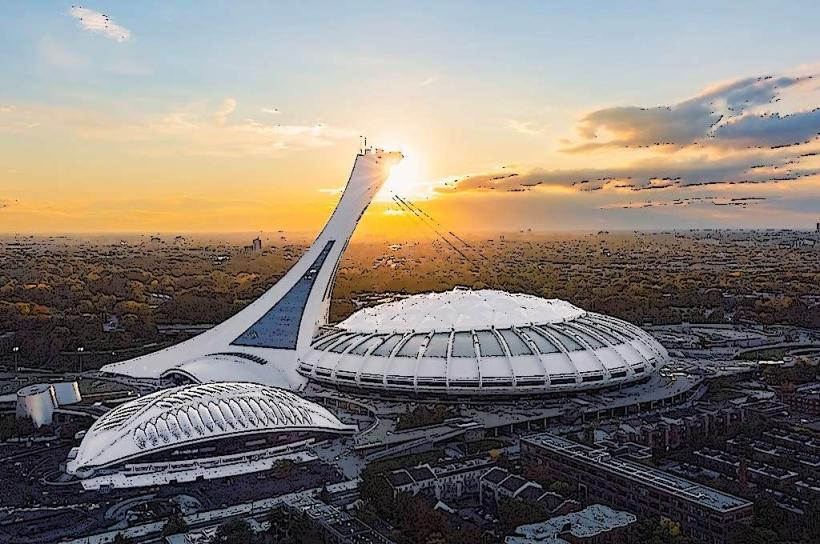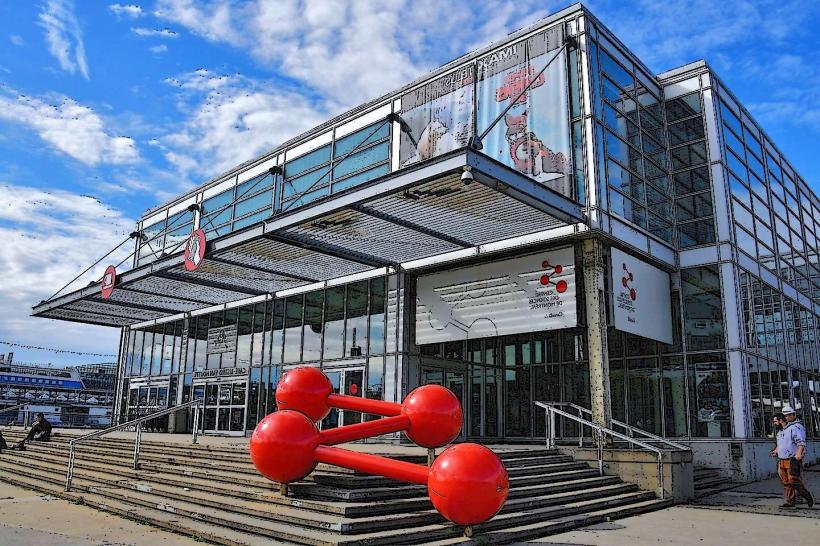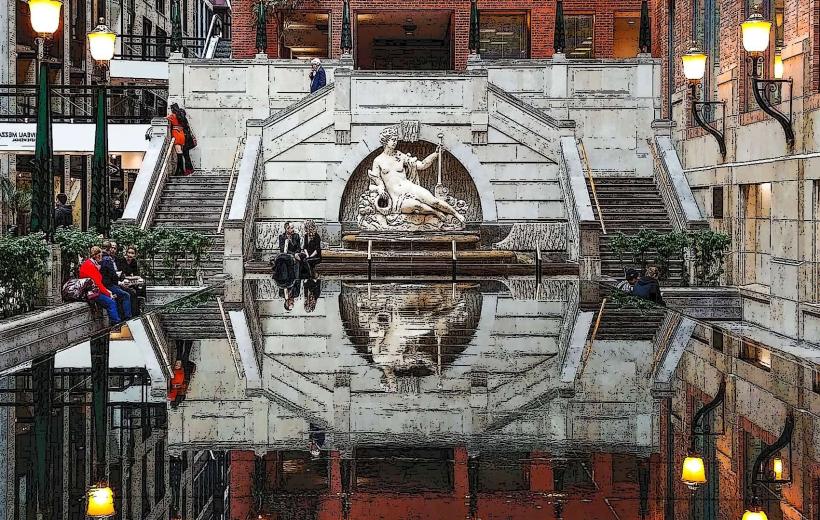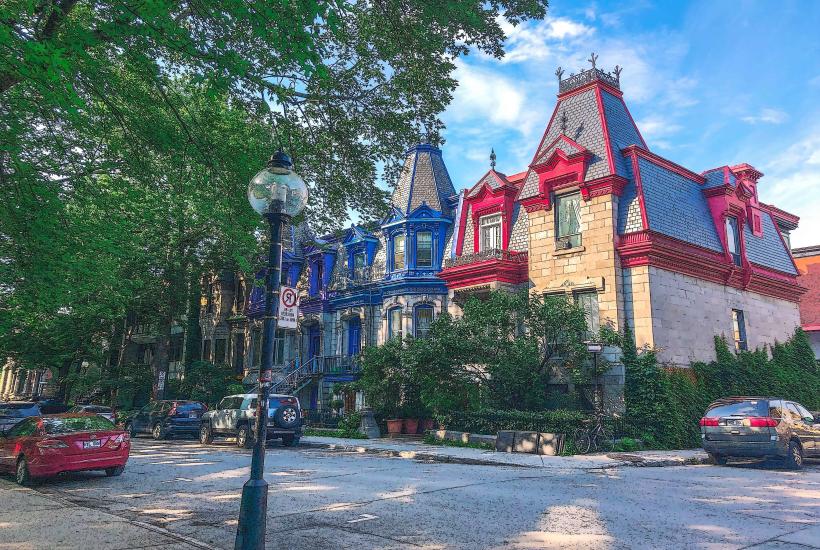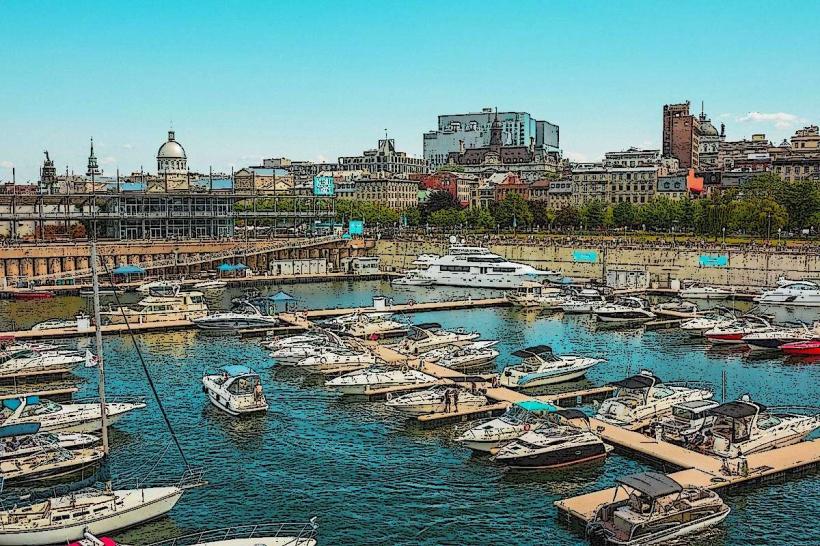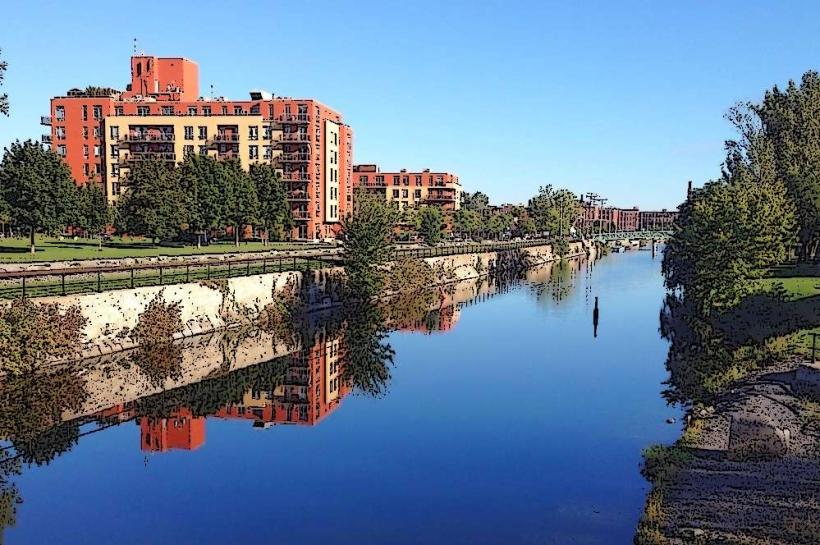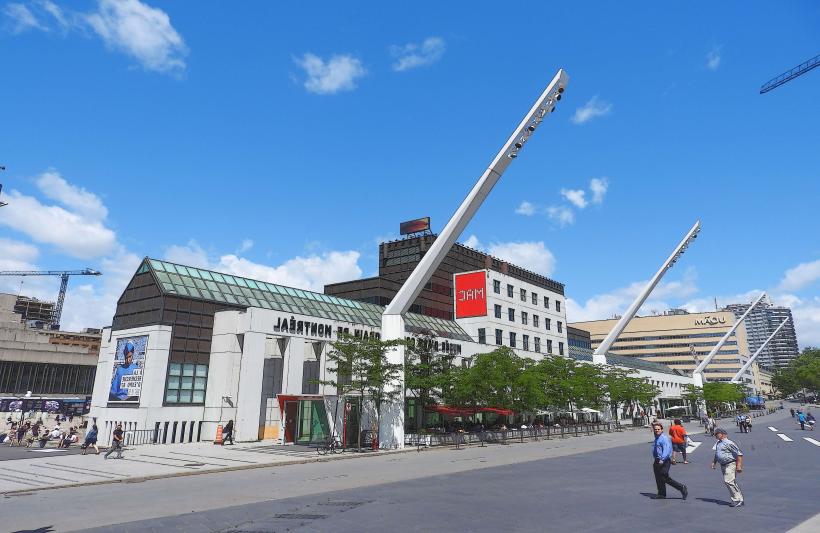Information
Landmark: Montreal TowerCity: Montreal
Country: Canada
Continent: North America
Montreal Tower, Montreal, Canada, North America
The Montreal Tower is a distinctive observation tower located in Montreal, Quebec, Canada. It is the tallest inclined tower in the world.
Visual Characteristics
The tower stands at 165 meters (541 feet) in height. Its structure is composed of reinforced concrete and steel. The exterior is primarily clad in white precast concrete panels, with a distinctive red band encircling the observation deck. The tower's inclination is 45 degrees, making it a unique architectural feat.
Location & Access Logistics
The Montreal Tower is situated within the Olympic Park at 4141 Pierre-de-Coubertin Avenue, Montreal, QC H1V 3N2. It is approximately 7 kilometers (4.3 miles) east of Montreal's city center. Access is via the Pie-IX Boulevard. Public transportation options include the Metro system, with the Olympic Stadium station (Green Line) located adjacent to the park. Parking is available in designated lots within the Olympic Park, with associated fees.
Historical & Ecological Origin
Construction of the Montreal Tower began in 1973 and was completed in 1976, coinciding with the 1976 Summer Olympics. It was designed by architect Roger Taillibert as part of the Olympic Stadium complex. Its original purpose was to serve as an observation point and a structural element supporting the stadium's retractable roof (which was later removed).
Key Highlights & Activities
Visitors can ascend to the observation deck via a funicular railway. The observation deck offers panoramic views of Montreal and its surroundings. The tower is also a focal point for the Olympic Park, which includes other attractions.
Infrastructure & Amenities
The observation deck is equipped with restrooms. Limited shaded areas are available on the observation deck. Cell phone signal (4G/5G) is generally available. Food and beverage services are typically available within the Olympic Park complex, though not directly within the tower itself.
Best Time to Visit
For optimal photography, early morning or late afternoon light provides favorable conditions. The tower is accessible year-round, but clear days offer the best visibility. No specific tide requirements apply.
Facts & Legends
The Montreal Tower's extreme inclination required significant engineering solutions, including a massive foundation and a counterweight system. A unique aspect is the presence of a small museum dedicated to the 1976 Olympics located at the base of the tower.
Nearby Landmarks
- Olympic Stadium (0.1km North)
- Biodome de Montréal (0.4km West)
- Botanical Garden (0.6km Northwest)
- Insectarium de Montréal (0.7km Northwest)
- Rio Tinto Alcan Planetarium (0.3km West)

